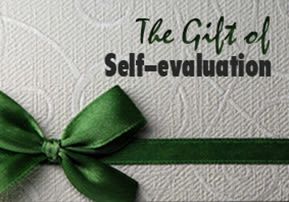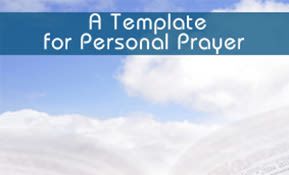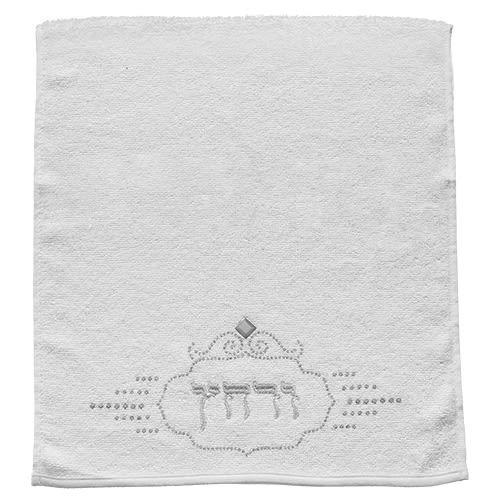
The Gift of Self-evaluation
The Zohar teaches that there is no double jeopardy in Heavenly jurisprudence: if a person judges himself, then the Heavenly court is not allowed to touch the case.

Translated by Rabbi Lazer Brody
In Forest Fields, Part 35
This week, we’ll continue discussing additional subjects that we should include in our hitbodedut:
Praying for hitbodedut
As we mentioned earlier, everything in life requires prayer; hitbodedut is no exception. The opportune time to ask Hashem to help us make the most out of our personal prayer session, to open our hearts, and to put the right words in our mouths is at the beginning of the session. This helps us enter hitbodedut with emuna and humility.
We especially need to ask Hashem to remind us of all the things we need to atone for and everything we need to pray for. We also ask Hashem to enlighten us as to what we should concentrate on during today’s session and to assist us in honestly and candidly evaluating ourselves. More than anything, we should beg Hashem to lead us in the path of truth.
A prayer for the People of Israel
Praying daily for our brothers and sisters around the world is critically important. We should pray that everyone should come close to the true tzaddik and make teshuva. We should pray that everyone should learn emuna, and that each person talk to Hashem for an hour a day in personal prayer. We should pray for an end to exile and assimilation, and that Hashem should send us Moshiach and our rebuilt Holy Temple in Jerusalem. It’s also important to pray for the nations of the world, that they should all recognize that Hashem is King; when that day comes, there will be true peace on earth.
Self-evaluation
Rebbe Nachman cites the many blessings of self evaluation, when a person judges himself and resolves to improve his ways. By judging himself, he attains the true fear of G-d and therefore fears no one else (Likutei Moharan I:15). Also, by virtue of self-evaluation and introspection, what we call in Hebrew cheshbon nefesh, he acquires a deeper insight of the way Hashem runs the world and understands how everything in his life is for the very best. As such, this life becomes heavenly, as sweet as life in the next world (ibid. I:4).
 The Zohar teaches that there is no double jeopardy in Heavenly jurisprudence: if a person judges himself, then the Heavenly court is not allowed to touch the case. Not only that, but Hashem casts away the accusing angels that come to report the said person’s misdeeds, for the person has already confessed to Hashem.
The Zohar teaches that there is no double jeopardy in Heavenly jurisprudence: if a person judges himself, then the Heavenly court is not allowed to touch the case. Not only that, but Hashem casts away the accusing angels that come to report the said person’s misdeeds, for the person has already confessed to Hashem. The two huge benefits of judging oneself are: one, a person is much more lenient toward himself than anyone else is; and two, Hashem is ever-so-patient and forgiving, happy to accept our sincere teshuva and to let us make a new beginning.
Rabbi Levi Yitzchak Binder of blessed memory said that a person’s life is like a book and each day is a page. When a person devotes an hour to self-evaluation and personal prayer, Hashem turns that day’s page without judging that person at all for any misdeeds that he might have done that day.
Our session of self-evaluation is also an opportune time to thank Hashem for all the previous day’s blessings, both material and spiritual. One need not spare words – the more we talk to Hashem, the better, for our expressions of gratitude to Hashem open our heart and enable us to express ourselves even more.
Daily self-evaluation and expressions of gratitude should be an integral part of our daily agenda, including Sabbath and holidays. Although we don’t ask for material blessings on the Sabbath such as a good livelihood or a new house, we nevertheless don’t miss a day of personal prayer. Our personal prayer sessions on Shabbat should center on expressions of thanks and praise to Hashem. If a person doesn’t engage himself in personal prayer every single day, then expressing his gratitude is preferable to self-evaluation and teshuva on the Sabbath day. But, if a person is used to cleansing his soul every single day by way of self-evaluation and teshuva, he may do so also on the Sabbath.
As a general rule, one may not cry on the Sabbath day. Yet the Ram”a writes (Shulchan Oruch, Orach Chaim 288:2), “Whoever takes pleasure in crying so that sorrow will leave his heart, he may cry on Shabbat.” As such, one who delights in doing teshuva may do so on Shabbat. Even if he cries while confessing his misdeeds, he will purge his heart from sorrow and will attain the level of happiness and pleasure that honors the Sabbath.
Avot D’Rebbe Natan (Chapter 15) relates an anecdote about Rabbi Eliezer who said, “Return to Hashem the day before you die.” His students asked him how a person knows when he’s going to die. Rabbi Eliezer answered, “Therefore, you must return to Hashem every single day; that way, all your days are in teshuva!”
The above anecdote teaches us that a person must make daily teshuva, for he never knows which day on earth will be his last. Hitbodedut, self-evaluation and teshuva are therefore vital parts of our daily routine seven days a week, including Shabbat.
Spiritually, Shabbat is a time of elevation. Our sages said (see tractate Berachot, 31) that the Heavenly Court rescinds seventy years of harsh decrees against a person who fasts on the Sabbath. Even though our personal prayers on the Sabbath should center around praise and gratitude, we should nonetheless never forget about teshuva and self-evaluation so that all our days will be spent in teshuva.
Regular prayers
Our sages teach us that a person’s evil inclination attempts to overcome him every single day. Therefore, we must seek Hashem’s help in overcoming our evil inclination daily. Most importantly, we should ask Hashem to help us guard our eyes, for one who guards his eyes will be spared of a long list of transgressions including coveting, adultery, and lewd thoughts, just to name a few. One cannot possibly guard one’s eyes without constant supplication to Hashem, every single day of a person’s life, for guarding our eyes is a lifelong test.
Another vital need we must ask for every day is shalom bayit, or marital peace. As mentioned in The Garden of Peace, marital peace is a person’s foremost obligation, since his entire mitzvah observance, Torah study, and service of Hashem depend on his shalom bayit. Like guarding one’s eyes, one must never stop praying for marital peace. A person who loses focus on making every effort toward marital peace in thought, speech, deed, and especially prayer is liable to see an immediate decrease in shalom bayit. The evil inclination is more than ready to fill the void left by the lack of prayer and to wreak havoc on a person’s marital peace, G-d forbid. As such, we must always be on guard with our prayers.
Self improvement
Rebbe Nachman explains (Likutei Moharan I:52) that in order to overcome a bad habit or a certain lust one must devote extensive personal prayer, at least 30 minutes per day. The more serious the habit and the more difficult it is to overcome, the more daily personal prayer is required. In this manner, a person should pray daily until he rids himself of the habit altogether; this is the road to self improvement.
Once a person overcomes one particular negative trait or habit, he can then move forward to work on the next bad habit or negative characteristic on his self-improvement priority list. For example, suppose a person suffers from a bad temper and easily succumbs to anger. He should devote a substantial portion of his daily personal prayer session in begging Hashem to help him overcome his anger until he uproots anger altogether from his life. Other problems that arise from time to time necessitate core treatment, such as debts, marital strife, and health problems, all of which indicate a deeper root cause that must be reckoned with. Our problems in life are normally wake-up calls designed to trigger our self-evaluation and self-improvement.
An important element of self-improvement is praying to implement and internalize what we learn. This is what Rebbe Nachman referred to when he said that we should convert our Torah learning into prayers (see Rebbe Nachman’s Discourses, 145; Likutei Halachot, Rosh Chodesh, 5; Outpouring of the Soul, 11). For example, when we read a tzaddik’s essay on the importance of guarding our eyes, we should then pray that Hashem will help us to implement and internalize all the points that were mentioned in the essay.
In summary, our daily personal prayer sessions are not only a time for us to give thanks to Hashem, to take stock in ourselves and to do daily teshuva, but also a time for self improvement. In addition to overcoming bad habits and negative character traits, we must ask incessantly for the positive attributes in the service of Hashem such as emuna, joy, humility, and diligence.
To be continued.












Tell us what you think!
Thank you for your comment!
It will be published after approval by the Editor.